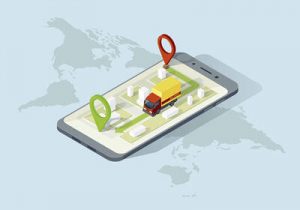
Dedicated to Provision of Long Term Stable Running IoT Devices
- mailbox
 [email protected]
[email protected] - phone
 +86-755-85241929
+86-755-85241929

Dedicated to Provision of Long Term Stable Running IoT Devices
 [email protected]
[email protected]  +86-755-85241929
+86-755-85241929 Police vehicle pursuits may end in crashes that result in significant property damage and sometimes loss of life. Law enforcement agencies have attempted to address the issue through changes in policy and training, and the introduction of new technologies and methods for slowing down or tracking a vehicle also can play a part in mitigating the situation. locator GPS tracker Tracking plays an important role in search and rescue operations, allowing rescue personnel to keep track of the locations they’ve covered, look at the big picture in a search operation, or even pull GPS data directly from a lost individual’s GPS device or phone.
When a search and rescue operation is looking for survivors from a major disaster or trying to locate a missing person in an undeveloped area, they use a grid system. This ensures that each area is searched thoroughly, and no area is searched twice at the expense of other locations. Years ago, search and rescue operations were conducted with a pencil and paper. This method could at times be inaccurate and confusing for volunteers. Today search and rescue teams often are equipped with GPS trackers to ensure a more accurate search pattern.
GPS is important as it helps you to figure out where you are and where you are going when you are traveling from one place to another. Navigation and positioning are important but cumbersome activities, which GPS makes easier. Once GPS locates your position, and then it starts tracing other factors like speed, bearing, tracks, trip distance, sunrise/sunset time, distance to destination, and several other details. GPS uses ‘man-made’ stars as reference points to calculate positions accurately to a matter of meters. However, with recent forms of GPS, you can make measurements much better than centimeter readings. So it is with the aid of GPS that you can give a unique and specified address to every square meter on the planet. So these days GPS finds its way into cars, planes, boats, construction equipment, smartphones, and laptop computers. In addition, a GPS tracking system installed in the phone can greatly help an individual to get automated GPS information through their cell phones.

The use of locator GPS tracker
This is the main and most common application of GPS—tracking locations. A lot of adventure lovers have their own trackers because of the many benefits of GPS for hiking enthusiasts. Suppose you are hiking with your friends and you get separated, GPS can help you find one another’s location.
If you are going on a road trip or are traveling to a place you’re not familiar with, GPS can assist you to arrive at your destination safely and on time by showing you the best route or shortcut available going to your destination.
In case you encounter an accident or any emergency in an isolated area and need immediate assistance, you can call pre-programmed emergency numbers on your smartphone. One of the most noteworthy uses of GPS is that even without giving location details, the emergency crew will be able to trace your current location.
Being an excellent anti-theft device is one of the uses of GPS. Installing tracking devices on vehicles will allow you to trace and locate them in case your car is stolen by someone. There are already several reports of recovered stolen vehicles, thanks to GPS technology.
GPS can also be used in mapping and surveying projects. The use of GPS in surveying saves companies time and cost. This is the best way to survey positions in the shortest time possible. The project could be mapping highways, power lines, crops, soil types, rivers, etc.
The police also take advantage of the use of a locator GPS tracker. These devices can also be used by police and investigators in catching criminals using a locator GPS tracker. The authorities will just have to slickly attach a tiny GPS tracking device to the suspect’s vehicle to track the crime location. GPS can help them collect useful evidence.